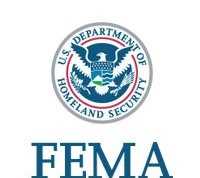Extreme Weather and Climate Change Threaten to Worsen the Affordable Housing Crisis
Washington, D.C. – (RealEstateRama) – Homelessness and the lack of affordable housing are already at crisis levels in the United States, but extreme weather events, fueled by climate change, threaten to compound these problems. A new Center for American Progress report, “A Perfect Storm: Extreme Weather as an Affordable Housing Crisis Multiplier,” explains how climate change is exacerbating the affordable housing crisis and lays out solutions for building strong, healthy, fair, accessible, and affordable communities that are resilient to existing and future climate impacts.
The report calls on policymakers to simultaneously address climate change and housing issues, which would save money and lives while improving the health and livelihood of communities across the nation. It would also help to address the national shortage of 7 million affordable and available rental homes for extremely low-income renters, an issue that disproportionately affects communities of color and disabled people.

The report outlines five key recommendations to help alleviate the problem:
- Support equitable evacuation and disaster recovery for all survivors of natural disasters
- Expand investments in federal rental and homeless assistance programs
- Prioritize equitable housing policies and just community development
- Invest in infrastructure that is built to last, including by improving the design and resilience of new and existing infrastructure
- Increase funding for disaster mitigation and climate change adaptation strategies
“Previous attempts to address the devastating impacts of natural disasters have failed to consider the intertwined threats of more extreme weather due to climate change and the lack of affordable housing,” said Guillermo Ortiz, co-author of the report and research assistant for Energy and Environment at the Center for American Progress. “It is important for policymakers across all levels of government to be diligent in building more resilient and prepared communities.”
For more information or to speak to an expert, please contact Julia Cusick at ?g?r?o?.?s?s?e?r?g?o?r?p?n?a?c?i?r?e?m?a?@?k?c?i?s?u?c?j? or 202-495-3682.
Contact: Julia Cusick
Email: ?g?r?o?.?s?s?e?r?g?o?r?p?n?a?c?i?r?e?m?a?@?k?c?i?s?u?c?j?

















